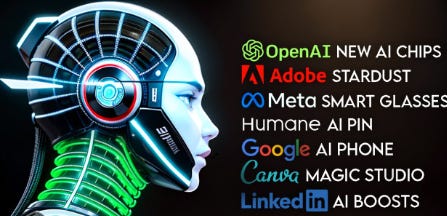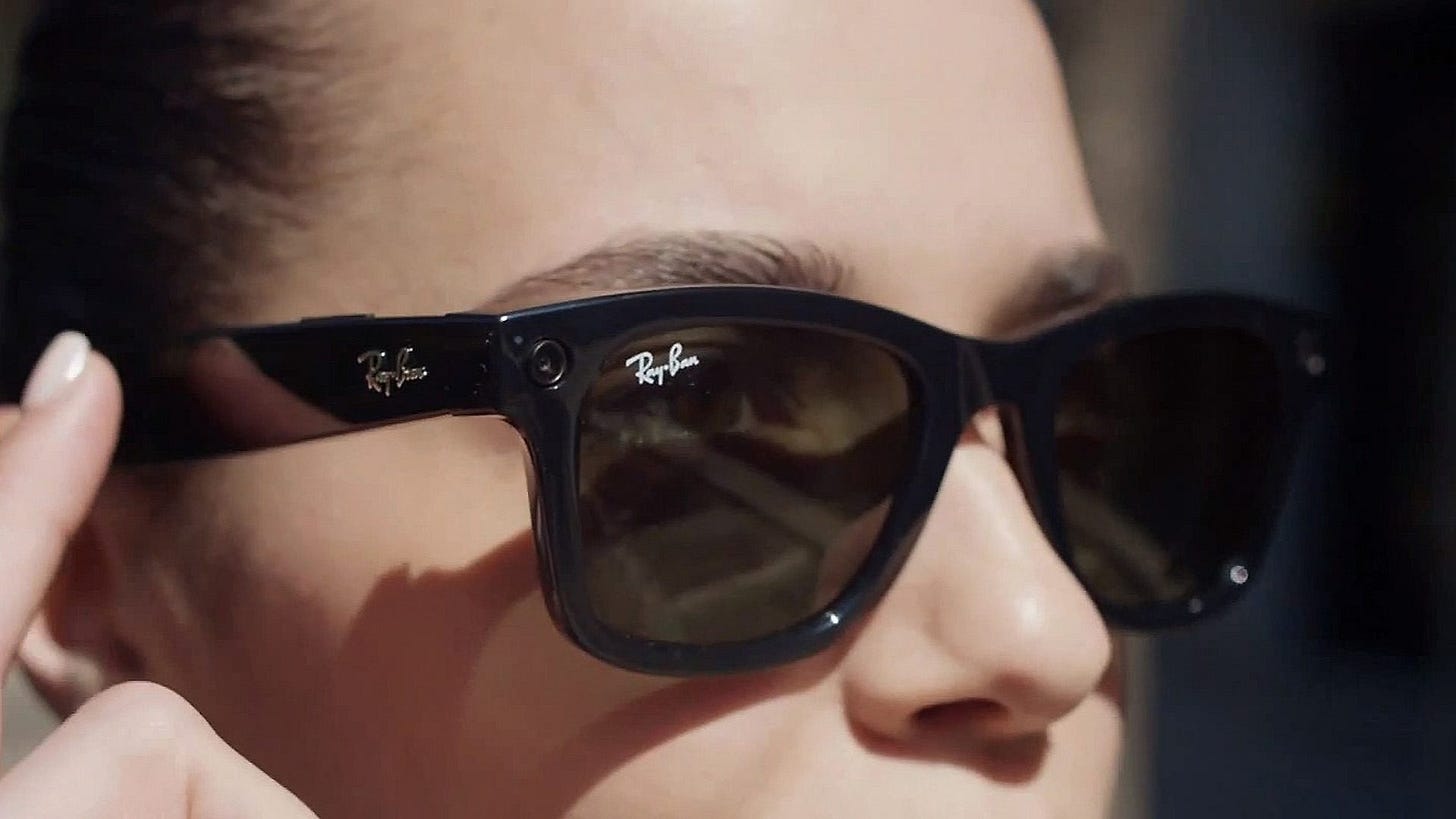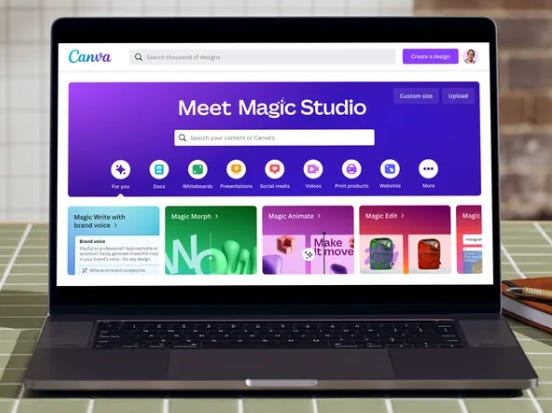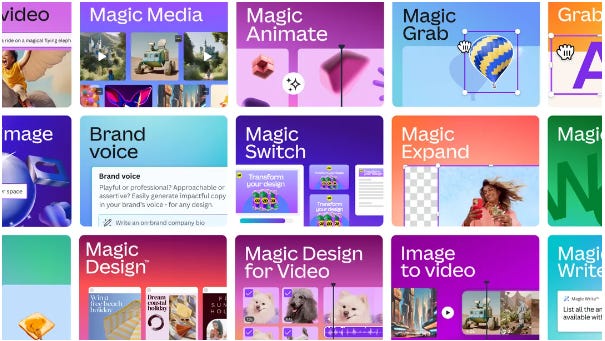The AI Revolution: Exciting New Developments to Watch Out For!
OpenAI and Microsoft's AI Chip Ambitions, Adobe's AI Photo Editor, Meta's Smart Glasses, Google's Pixel Watch AI - The Latest Exciting AI Announcements to Watch Out For!
There's never a dull moment in the world of artificial intelligence, and this past week saw several fascinating AI announcements that have us on the edge of our seats. From ambitious plans by AI heavyweights to creative new ways of using AI, let's dive into the details!
OpenAI and Microsoft Aim for AI Chip Domination Amid Global Shortage
OpenAI has hinted at a potential move that could shake up the AI chip industry - creating their own custom chips for AI processing. This comes as no surprise, as the global chip shortage over the past few years has highlighted the importance of GPUs in delivering optimal AI experiences. With partners like Nvidia struggling to meet surging GPU demand, OpenAI is smart to consider alternatives like partnering with chipmakers or going solo.
There's even chatter about OpenAI teaming up with ex-Apple chip wizard Johann Jungwirth to design novel AI hardware. This collaboration would turbocharge OpenAI's in-house chip capabilities. And OpenAI isn't alone in this - rumors suggest Microsoft is also exploring making its own AI chips to reduce reliance on suppliers. With the skyrocketing appetite for AI and GPUs across applications from chatbots to computer vision, having custom AI chips could be a strategic advantage for these tech giants.
The lack of a steady GPU supply was apparent during the overload issues with Microsoft's viral ChatGPT-powered Bing chatbot recently. But with custom chips, they can optimize performance for their specific AI needs. This potential move rings of innovation, but also uncertainty as execution remains key. While the timeline for OpenAI or Microsoft's own AI chips isn't clear yet, these rumors highlight that major players are pulling out all the stops to advance AI capabilities. We can't wait to see what novel AI chip architectures and devices could emerge from these tech titans down the road!
Adobe Wows with AI Photo Editing in Project Stardust
Adobe teased an exciting new AI creation tool at its annual MAX conference - Project Stardust! This tool aims to simplify image editing using the power of artificial intelligence. Unlike the tedious manual selection of objects common today, Project Stardust identifies and selects elements automatically with just a click. It works similar to Google's Magic Eraser tool but seemingly more advanced.
Objects within images are singled out easily, allowing users to move or delete them seamlessly. The tool then magically fills in the missing gaps, ensuring edits look natural. A demo showed it predicting the next step too - automatically suggesting the ‘remove distractors’ option when a blurry crowd was picked. This cleared the crowd from the image instantly!
Stardust also flaunts promising generative AI skills. It can populate selected areas with artificial flowers or swap clothing articles on models through text instructions. This aligns with the rise of automated design tools like DALL-E 2 and Stable Diffusion. While full details are pending until its release, Adobe hints Project Stardust will reimagine user experiences and creative workflows. If it lives up to the hype, it could be a game changer for effortless AI photo editing!
Meta and Ray-Ban Release Next-Gen Smart Glasses
Get ready to sport some seriously smart specs! Meta has unveiled the next generation of Ray-Ban Stories glasses in collaboration with iconic eyewear brand Ray-Ban. Slated for an October 17 release, these AI-powered glasses aim to enhance everyday moments for wearers.
Unlike regular shades, these let you discreetly capture photos and videos, listen to music, and make calls hands-free using voice controls. Packed with speakers, a camera, and a microphone system, the onboard Meta AI assistant offers voice-controlled assistance for tasks. The new version boasts upgrades like better audio quality for an immersive listening experience.
With over 150 customizable frame and lens options courtesy of Ray-Ban, you can sport these smart glasses in style. Prescription lenses can also be fitted for vision needs. Priced starting at $299, these AI glasses could be worthwhile accessories to augment reality in fun ways, although the price tag is still steep. We're eager to see how natural and seamless Meta makes the user experience as smart wearables gain ground.
Humane’s Stylish AI Pin Makes an Entrance
AI startup Humane, founded by former Apple executives, unveiled its first product - the Humane AI Pin - in true fashionable style on the runway! Top model Naomi Campbell flaunted the sleek wearable device at a prominent fashion show, marking its public debut.
Billed to go on sale November 9, the Humane AI Pin is an intriguing gadget you can attach to garments. It uses artificial intelligence to deliver personal computing in a screenless, discreet form factor. Unlike smartwatches or earbuds, the pin operates independently without a phone connection. Designed with privacy built-in, it only listens when prompted to.
The AI pin purportedly contains a fancy AI chip that enables visual recognition and projection capabilities. While full details are scarce, it's tipped to outperform Google's similar mini AI camera Clips, thanks to its standalone functionality. If the pin delivers on its promises, it could set a benchmark for wearable AI tech that keeps personal data private.
Its launches right after Snap shared ambitious plans for AR glasses over the next decade. As innovators like Humane and Snap push stylish, functional AR devices, mass adoption could happen faster than expected. But with any new product launch, especially from startups, maintaining quality at scale remains crucial.
Google’s Pixel Watch and Phones Pack More AI Smarts
Google doubled down on AI at its recent event, unveiling Pixel phones and watches crammed with AI-powered features. The Pixel Watch includes an on-device Assistant while the new Pixel 7 phones boast upgraded cameras and editing tools enhanced by Google's AI.
This aligns with Google's broader AI ambitions discussed at its I/O conference - making AI more integrated in its services and hardware. For instance, the Pixel phones support natural conversations with Google Assistant to get things done, thanks to the AI chatbot Bard.
Bard can now help generate snapped captions quickly for social media. The Pixel 7 Pro pushes camera capabilities with new AI photo editing options. Its claimed AI temperature checking feature could also enable health tracking. But the boosted AI tech does bump up costs, mirroring similar moves by Apple.
Between on-device intelligence and AI-optimized software experiences, Google is kitting its devices out more smartly. The Pixel Watch is also pitched as a fitness companion that can track heart rate continuously using AI. While privacy and battery life impact remain concerns, Google's doubling down on AI could make its hardware offerings stand out.
Canva’s Magic AI Studio Simplifies Design for All
To celebrate its 10th anniversary, Canva unveiled its Magic AI Studio suite to expand design abilities for users at all skill levels. It includes AI-powered tools across Canva's services like its core design platform, video maker, and image editor.
Magic Switch lets users convert designs into different formats and orientations in one click. An AI text-to-image generator and a AI writing tool to generate branded content also joined the mix. As visual content becomes vital for companies, not all have the expertise or means to produce high-quality designs regularly.
Magic Studio bridges this gap by using AI to simplify graphic design and content creation. Features like Magic Design that whip up designed assets from text in seconds and Magic Media that provides quick access to media could be game-changers for non-designers. Users can also refine Magic AI-generated designs manually for full control.
In addition, Canva is allocating $200 million towards an AI creator fund to support its community of designers, photographers, illustrators and more. This addresses concerns about AI threatening creative jobs. By combining AI with human creativity, Canva is aiming to make visual storytelling more efficient and accessible.
LinkedIn Rolls Out Helpful AI Features
Get ready to enhance your professional networking and recruiting on LinkedIn with artificial intelligence! LinkedIn is unveiling AI-powered features to help users find jobs, talent and learn skills better.
With the influx of AI advancements from Microsoft and OpenAI, LinkedIn is now baking these into its platform. Recruiters gain smarter tools to match promising candidates. Jobseekers can discover roles better suited to their capabilities and experience.
A new AI learning coach provides personalized guidance and recommendations to develop soft skills critical for career success. To ease marketing, LinkedIn's AI tool Accelerate aims to simplify running campaigns directly on LinkedIn.
For sales professionals, AI will assist with lead engagement and finding contacts. This could boost sales productivity and funnel health. While still early days, LinkedIn's integration of AI hints at a future where professional networking and growth get smarter.
But biases in AI algorithms continue to remain a concern when applied to sensitive areas like recruitment and skill development. LinkedIn will need rigorous testing to prevent issues with fairness or accuracy. But the potential is promising!
Microsoft Upgrades Bing, Paint with Enhanced AI Creativity
Microsoft is charging up its consumer products with AI boosts that make everything more intuitive and fun! It integrated OpenAI's latest image generation model DALL-E 3 into Bing's chatbot, despite OpenAI not launching its own DALL-E chatbot yet. This gives Microsoft an edge in AI image creation on the conversational AI front.
Instead of rigid prompts, Bing can now refine images through natural dialog thanks to the merger of DALL-E 3 and ChatGPT frameworks. DALL-E 3 also brings more realistic and creative image generation capabilities compared to before. Microsoft has added watermarking and content controls too.
In another move, Microsoft imported DALL-E into its classic Paint app, forming the Paint Co-creator feature currently being tested. This lets anyone create magic with DALL-E's AI artistry even without advanced digital art skills. Despite glitches from overwhelming demand, the potential creativity infusion into everyday apps via AI looks promising.
Northwestern’s Remarkable AI Designs Robots in Seconds
Imagine AI designing complete robots from the ground up in seconds - researchers from Northwestern University made this a reality! Their new AI system can autonomously conceptualize and generate novel robotic designs at unprecedented speeds.
Unlike evolution-based approaches that create robots gradually, this AI devised an entirely new walking robot within 26 seconds. It was given a block that could only jiggle initially. But through recursive design tweaks, the AI produced a multi-legged robot capable of bouncing and walking smoothly.
The finished robot didn't mimic any known organism but had an unconventional form with 3 legs and holes, likely for weight reduction and movement flexibility. The researchers coined the term “instant evolution” for this rapid ideation.
This AI has huge potential for creating robots specialized to traverse challenging environments. It could accelerate robotic innovation for applications from disaster relief to medicine. But concerns around controlling these AI systems safely persist. Still, enabling AIs to design solutions by considering mechanics and physics is an exciting leap into the future!
The Future is AI!
With AI continuing to advance at a breakneck pace, times are certainly exciting for shaping how humans and machines interact! But developers must prioritize aspects like transparency, ethics, and human oversight to build trust.
What we are witnessing are but the early steps towards an AI-powered world. But the possibilities to improve lives are endless - from personalized healthcare to breakthrough discoveries to interactive creative expression. We can't predict exactly how AI will transform our future. But one thing is for sure - the AI revolution is charging ahead at full throttle!
So buckle up and get ready to witness more magical AI innovations this year. We'll make sure to keep you updated right here with the latest developments. Let us know which announcements you found most exciting or concerning in the comments!









